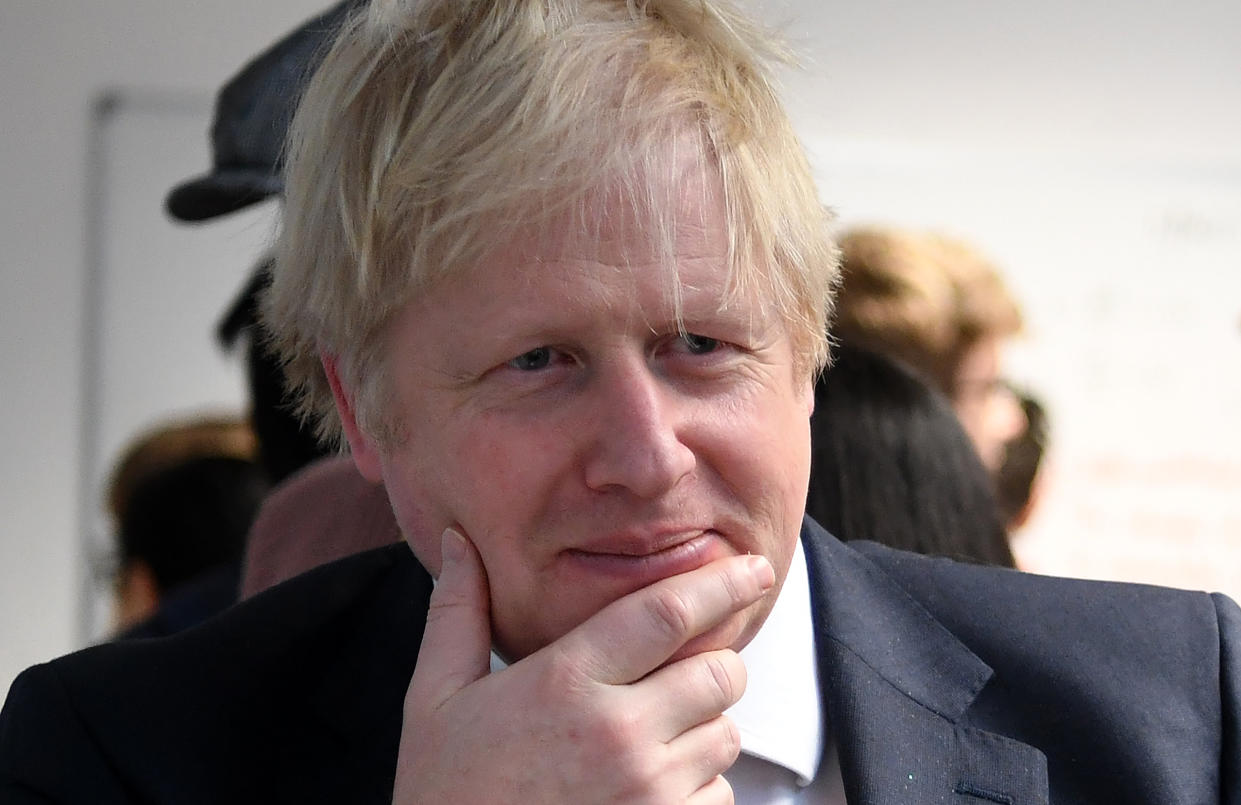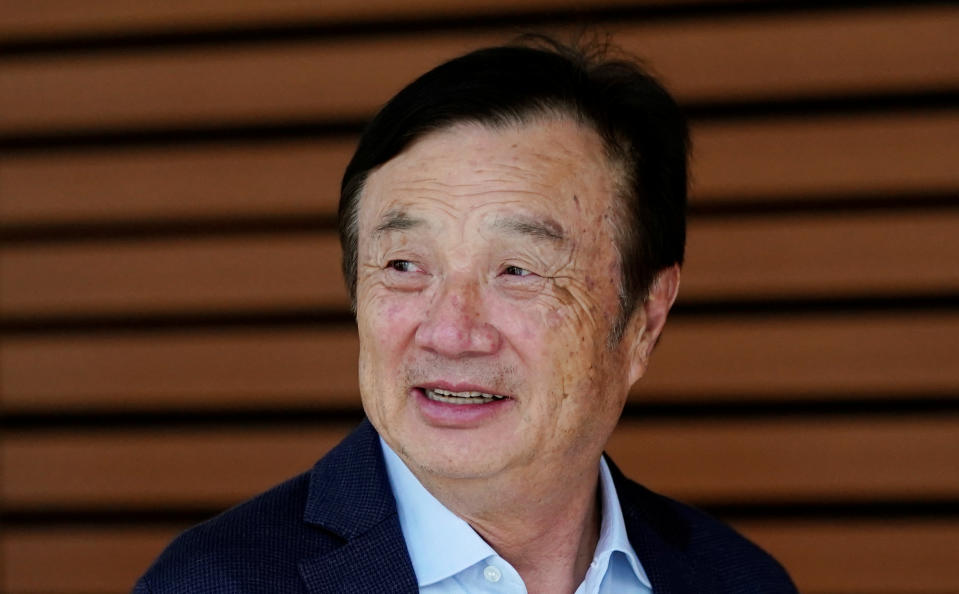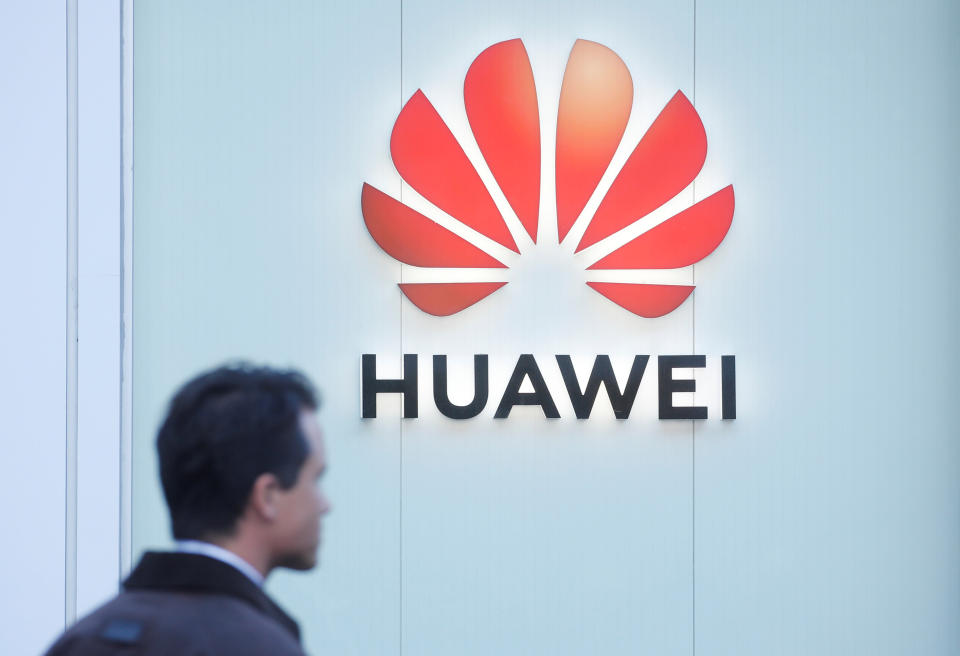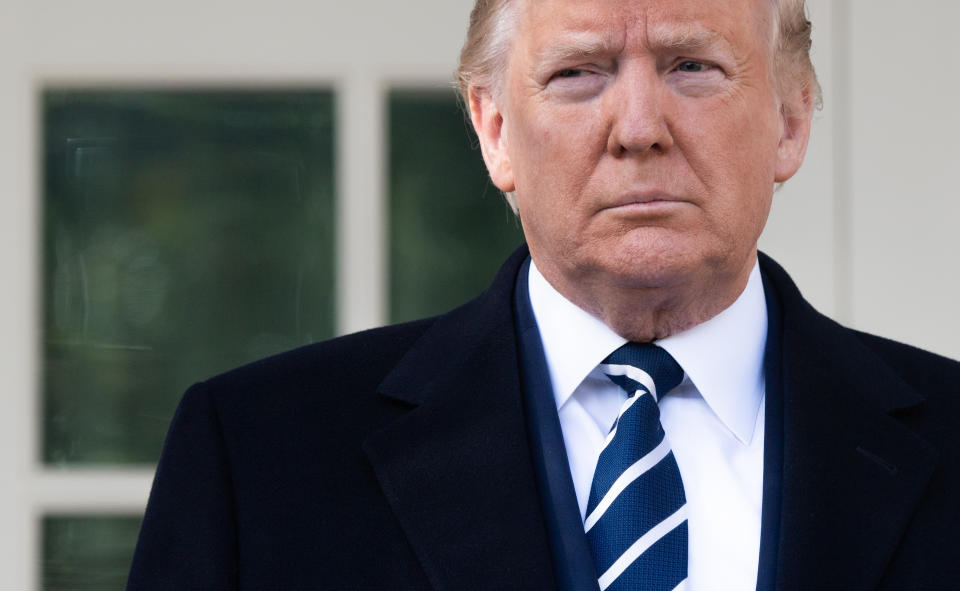Boris Johnson set to make crunch decision on Huawei

UK prime minister Boris Johnson is on Tuesday expected to take a final decision on whether to allow Huawei to work on Britain’s 5G infrastructure.
The prime minister will chair a meeting of the National Security Council to discuss the issue, culture minister Matt Warman told parliament on Monday. A decision is expected but may not be immediately announced.
The decision comes at a hugely sensitive time, with Brexit looming, and is likely to be one of the defining early moments of Johnson’s premiership.
READ MORE: US warns UK over 'momentous' Huawei decision
The UK has faced intense and sustained pressure from the US to block Huawei on security grounds.
Despite this, Reuters and the Financial Times report the government is set to recommend Huawei be allowed to work on 5G infrastructure in a limited capacity. Johnson is considering mandating a cap on Huawei’s market share in a bid to contain risks, the FT reported.

At issue are concerns that Huawei’s involvement in critical communications infrastructure could leave the UK vulnerable to spying or at risk of cyber attacks.
Huawei is an independent company based in Shenzen, China. However, the company was founded by a former People’s Liberation Army engineer and Chinese law says individuals and corporations must cooperate with intelligence gathering operations if asked. It has lead to concerns that Huawei may be asked to install secret ‘backdoors’ in its technology to allow the government to spy on sensitive communications.
READ MORE: UK officials formally recommend ‘limited’ role for Huawei in 5G networks
Huawei insists this isn’t the case. However, many governments are unwilling to take the chance. The company has been banned from working on 5G networks in Australia and New Zealand. The US placed sanctions on Huawei last year and US president Donald Trump has explicitly called the company a national security threat.
‘There is a cyber war going on’
Even if Huawei doesn’t cooperate with the Chinese government, experts warned having key parts of its supply chain based in China could allow security operatives to intercept and compromise equipment.
“Huawei could be a totally innocent provider that could be misused, but once the equipment is in place the risk exists,” Joe Hancock, head of cyber at law firm Mischon de Reya, told Yahoo Finance UK.
The nature of 5G “increases this risk further,” Hancock added. The super-fast wireless internet will allow more and more devices to be online and interconnected. It means even parts once seen as ‘dumb’ hardware could now theoretically be used as a way into systems.
A GCHQ official told the BBC last year that Huawei’s software development standards were “shoddy”, adding to concerns.
Former Tory party leader Sir Iain Duncan Smith was strident in setting out the risks in a speech in parliament on Monday.
“We are at war in a sense, there is a cyber war going on at which China is arguably the single biggest participant,” Sir Iain said.
“That we should think about giving a company which is heavily subsidised by China, a country that has set out to steal data non stop and also technology; that we think of giving to them that right to be in what is essentially a very, very delicate area of our technology, the idea that we would do that seems to me utterly bizarre.”
In a doomsday scenario, experts fear the Chinese government could use its access to Huawei to shut off critical communications infrastructure at times of international tension.
‘First mover advantage’
On the other hand, banning Huawei could see the UK fall behind in the global technology race.
China pioneered 5G technology and Andrew Tsonchev, director of technology at cyber security firm Darktrace, said a boycott would set the UK back by five years in technology terms.
“They simply have a significant first mover advantage,” he told Yahoo Finance UK.
Experts believe 5G will revolutionise society by allowing everything from fridges to pacemakers to connect to the internet, and other devices, 24/7. The speed and reliability of 5G should allow for a step-change in the way technology can operate and communicate. [Disclosure: Yahoo Finance’s parent company Verizon is a vendor of 5G technology.]
Huawei, the world’s biggest telecom equipment maker, is one of only a handful of 5G equipment manufacturers globally, and rivals such as Ericsson and Nokia are more expensive. UBS said in a note on the technology last year that “the pace of rollout [in Europe] has been impacted by uncertainties around Huawei”.

UK officials accept there are threats from Huawei but believe they are overblown and can be managed. The head of MI5 has publicly downplayed any risks and the government is expected to allow Huawei to work on ‘non-core’ areas of infrastructure such as antennae.
READ MORE: Verizon exec: 5G will be 'transformational' for society, not just economy
Boris Johnson hinted at such a compromise during an event on Monday.
“The way forward for us clearly is to have a system that delivers for people in this country the kind of consumer benefits that they want through 5G technology, or whatever, but does not in any way compromise our critical national infrastructure, our security or jeopardise our ability to work together with other intelligence powers around the world,” said the prime minister.
Mischon de Reya’s Hancock said: “The most pragmatic route is to allow Huawei into the low risk areas of the new 5G networks and to restrict access to the higher risk core. This balances the cyber security risks against the risk of 5G equipment not being available domestically and a rollout being delayed.”
Tsonchev agreed that limited approval was likely the most “reasonable” decision.
Brexit trade deal concerns
Even so, Johnson will have to tread carefully to ensure he doesn’t anger Britain’s international partners. The UK is part of the so-called ‘Five Eyes’ intelligence sharing network, which includes the US, Australia, and New Zealand. Partners fear that any possible compromise in the UK could expose the whole network.
The looming Brexit deadline makes all this particularly sensitive. The UK is about the enter trade talks with Five Eye partners and an unnamed Trump administration official told the Wall Street Journal last week the “appetite for a US-UK trade agreement could be diminished” if the UK approves Huawei.
“You have the political motivations, driven by very legitimate national security concerns,” Tsconchev said. ”You also have motivations that are not so much about national security but about international dominance and foreign relations. You have economic arguments about protectionism about trade wars and tariffs and those types of concerns. And then finally you have, strictly speaking, the information security concerns.”

Johnson is gearing up to thread the needle.
“We are going to come up with a solution that enables us to achieve both those objectives and that’s the way forward,” Johnson said on Monday.
“There’s no reason why we shouldn’t have technological progress here in the UK, allow consumers, businesses in the UK access to have access to fantastic technology, fantastic communications, but also protect our security interests and protect our key partnerships with other security powers around the world.”
A spokesperson for Cabinet Office said it wouldn’t comment on any matters involving the National Security Council. Huawei declined to comment on the process and its dealings with the UK government.

